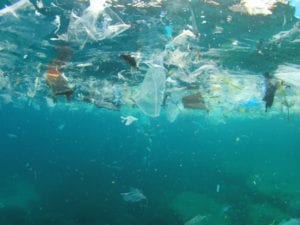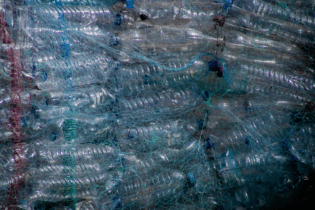Lost and abandoned fishing gear which is deadly to marine life makes up the majority of large plastic pollution in the oceans.
This is according to a recent report by Greenpeace. More than 640,000 tonnes of nets, lines, pots and traps used in commercial fishing are dumped and discarded in the sea every year. The equivalent of these, is the same weight as 55,000 double-decker buses. The report, which draws on the most up-to-date research on “ghost gear” polluting the oceans, calls for international action to stop the plastic pollution, which is deadly for marine wildlife. About 300 sea turtles were found dead as a result of entanglement in ghost gear off the coast of Oaxaca, Mexico, last year. And in October, a pregnant whale was found entangled in ghost gear off the Orkney coast.Louisa Casson, an oceans campaigner at Greenpeace UK, said ghost gear is a major source of ocean plastic pollution and it affects marine life in the UK as much as anywhere else.
“The UK’s waters do not exist in a vacuum as oceans have no borders. The world’s governments must take action to protect our global oceans, and hold the under-regulated fishing industry to account for its dangerous waste. This should start with a strong global ocean treaty being agreed at the United Nations next year.” The report said abandoned fishing gear was particularly deadly. “Nets and lines can pose a threat to wildlife for years or decades, ensnaring everything from small fish and crustaceans to endangered turtles, seabirds and even whales,” it said. “Spreading throughout the ocean on tides and currents, lost and discarded fishing gear is now drifting to Arctic coastlines, washing up on remote Pacific islands, entangled on coral reefs and littering the deep seafloor.”






